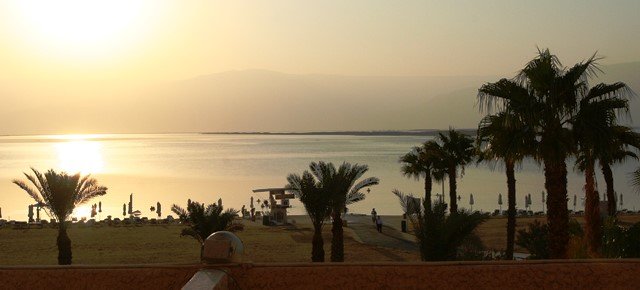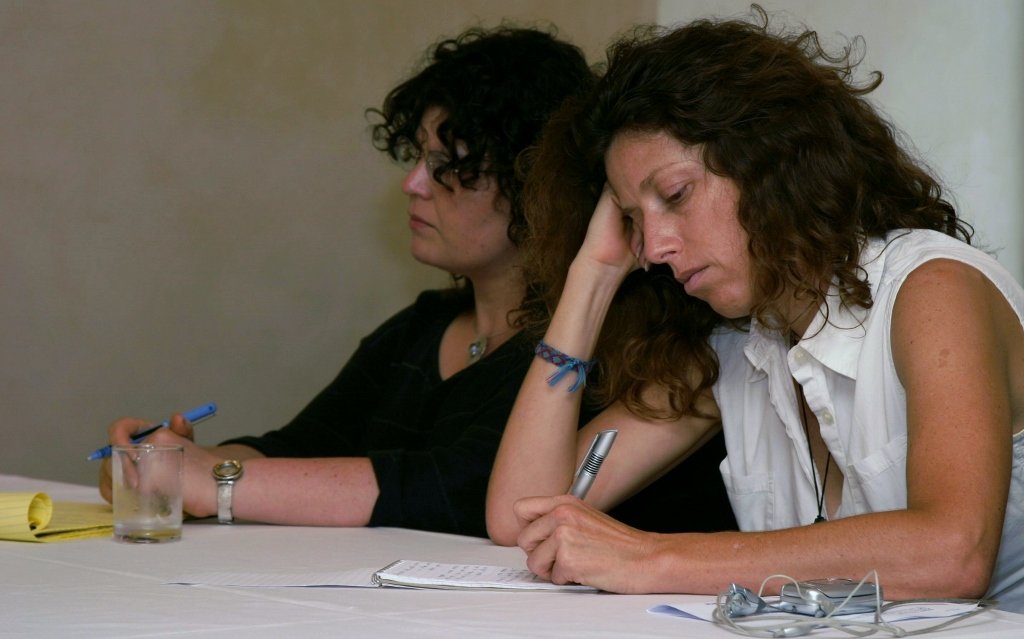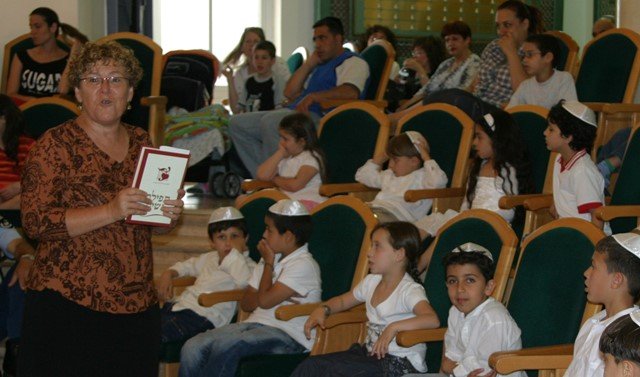Share This Story, Choose Your Platform!
In the synagogue of Antioch in Pisidia in Asia Minor Paul already distinguished between the first and the second Psalm (Acts 13:33), as do all common Bible editions today.[1] However, it is noticeable that Psalm 2 lacks a headline in its original Hebrew text. Furthermore, a number of ancient Hebrew manuscripts treated the second psalm as continuation of Psalm 1.[2]
Thus, rabbinic exegetes observe that the first two chapters together prelude the Book of Psalms and, from a literary point of view, form a unity.[3] Radak[4] also points to this observation and concludes: “David loved this section very much. [Therefore] he started it with ‘blessed’ and concluded it with ‘blessed’.”
“Blessed is the man …” (Psalm 1:1). The emphasis on “happy”, “blessed” (אַשְׁרֵי) is particularly striking in comparison to Jeremiah 17:5-10. This passage is a parallel to Psalm 1, except that Jeremiah starts his talk with “cursed” (אָרוּר).
Obviously, the author of Psalm 1 is quite conscious of the terrifying, global chaos (Psalm 2) that provides the context of his words. He is aware of the rebellion of the nations of this world against their Creator. He knows about the threatening judgment of God on the horizon.
But what binds his remarks in Psalm 1 and Psalm 2 together is the “אַשְׁרֵי/ashrey”, “happy,” “blessed.” From his perspective, it is happiness, bliss, the good, the positive, that sets the key accent in an environment characterized by confusion, turmoil, anger, shouting, futility, perversion, suffering, and, as a result, God’s judgment. Psalm 1 reveals the key to a fulfilled life, even though the environment does not seem to promote “happiness.”
Progress as bliss
Samson Raphael Hirsch[5] explores the Hebrew phrase “אַשְׁרֵי/ashrey,” “happy,” utilizing his unique sense of language. He compares a series of words that are phonetically related and recognizes etymological cross-connections. Thus, he reaches the conclusion that “אַשְׁרֵי/ashrey” not only indicates “the possession of faculties and material goods already attained”, but rather from a purely linguistic point of view the advance toward salvation, the “progress toward the eventual attainment of such material and spiritual wealth.”[6]
Just as the first two psalms are held together by the “happy,” the whole first book of the Psalms (chapters 1-41) is introduced by a two-fold “happy” (Psalms 1:1 and 2:12) and concludes with a twofold “happy” (Psalm 40:5 and 41:2).[7] Psalms 32, 41, 112, 119, and 128 position a “blessed,” a beatitude, at the beginning of what they have to say. Likewise, Jesus commences His Sermon on the Mount with a nine-fold “happy” (μακάριοι) (Matthew 5:3-11).[8]
Hirsch recalls that “already our sages” – the Jewish interpreters of Scripture in antiquity – “pointed out how, by means of this word אשרי [ashrey], תהילים [tehillim, the Book of Psalms] begins immediately where the תורה [torah, the Pentateuch, the five books of Moses] left off. The farewell blessing of Moses, וזאת הברכה [vezot haberachah; ‘And this is the blessing…’; Deuteronomy 33:1], ended with the words אַשְׁרֶיךָ יִשְׂרָאֵל מִי כָמֹוךָ [‘Blessed are you, Israel, who is like you…’; Deuteronomy 33:29]. David begins where Moses left off, with אַשְׁרֵי־הָאִישׁ [‘Blessed is the man’].” However: “David here brings to the attention of every individual that which Moses had stated with regard to the nation as a whole.”[9]
Martin Luther observes the plural of the Hebrew word for “happy”, although Psalm 1 is about an individual: “The Hebrew says in the majority אשרי [ashrey], blessed people or blessed circumstances, as, in blissful conditions is the man”[10] – an observation which the Christian Reformer may have adopted from the Jewish commentator Radak. Radak explains to Psalm 1:1 that it is not only a good, a positive experience, one straw of hope to which the “happy man” clings, but a multitude of good things, an overflowing cup of happiness (Psalm 23:5) that shapes his life, even “in the valley of the shadow of death” and “in the presence of his enemies.”
Being well, even under adverse circumstances
It is this radiance of happiness, this atmosphere of blessing, that characterizes human beings who are close to the heart of the Heavenly Father. They do not mope because life is so difficult and everything will get worse anyway. They lead a fulfilled life even under the most challenging circumstances.
Thus, for example, the founder of the American Colony in Jerusalem, Horatio Gates Spafford, sang in November 1873 after his four daughters aged two to eleven were cruelly taken from him and from his wife by a catastrophe on the Atlantic Ocean: “It is well, it is well, with my soul!”
People who are close to the heart of God raise their heads because they know salvation is approaching (compare Luke 21:28), even though the whole world they understand may be faltering and unhinged around them. In a sinking world, their thinking, speaking and acting, their whole being is imbued by hope. They are “blessed”, and as such “happy”.
“Yet,” someone who is standing with both feet in everyday life may ask, “How is that possible? Does Scripture not paint a Utopia in front of our eyes, which at best allows a temporary escape from the real world, an illusion, but otherwise has nothing to do with the challenges of our time, with daily life – not to mention a fulfilled life in our real existing world?”
The psalmist shows a first step to happiness:
“Blessed is the man who does not walk in the counsel of the wicked, nor stays in the way of sinners, nor sits in the seat of the scoffers” (Psalms 1:1). – Happiness starts with a clear “No.” The first and all-important step to happiness is an unequivocal rejection. Whoever does not know how to refuse will never be happy. At this point, Psalm 1 and Jeremiah 17 are in agreement. Both passages begin with a negative statement and the awareness that a distinction must be made. “Friendship with the world is enmity against God,” explains James (4:4), the brother of Jesus and first bishop of Jerusalem: “Whosoever wants to be a friend of the world, positions himself as enemy of God.”
“… who does not walk in the counsel of the wicked …” – Radak suggests that “wicked” (רשע/rasha’) is a person who is all about money, whose sole purpose is directed towards this world, who therefore does not distinguish between good and evil, steals, robs, murders, just to satisfy the greed of his heart.
Martin Luther translates רשע [rasha’] as “godless”, referring to Saint Hilary, who characterizes as “godless” those who “have a bad opinion about God”. Luther concludes: “Godless [is] who lives in unbelief”[11].
Hirsch specifies: “The word רשע [rasha‘], phonetically related to רשה [rashah] (from which the Rabbinic רשות [reshut] is derived), ‘the untrammeled will,’ ‘the arbitrary power,’ and רשות [rashut] (Aboth I and II), ‘the government that makes laws,’ denotes the ‘scorner of the law,’ the ‘lawless’ one who deliberately withholds his obedience from the Law and lets himself be guided solely by his own will.”[12]
The Malbim[13] adds, that the behavior of the wicked affects both the relationship among people, as well as the relationship between God and man. Furthermore, his motivation is not just some desire or urge, but his wickedness, his evil character.
Deliberately against God
Hirsch finally emphasizes that the “council of the wicked” “actually denotes the reaching of a decision after deliberation and taking counsel. So the “wicked lawless” are therefore people who, with the utmost intellectual effort, consciously and deliberately violate divine law and override it.[14]
In the context of Psalm 2, this refers to those kings of the earth and those rulers who consult each other in order to consciously and purposefully override the Creator’s Torah through their own legislation. Absolutely correct, the prophetic Psalmist recognizes their striving as agitation “against the Lord and His Messiah” (Psalm 2:2).
Luther explains, “that according to the mode of Scripture ‘walking’ and ‘going along’ in the figurative sense (μεταφορικως) is the same as living together or having fellowship with someone”[15].
Radak recognizes that every human being from his very beginning walks in the ways of the world and accordingly bears in his blood its obsession for food, drinking and gratification, “as it is written (Genesis 8:21), ‘the instinct of the human heart is evil from youth.’” Therefore, Radak concludes, every person is called to implement in his life, what Psalm 34:15 teaches: “Avoid evil – and do good!”
“…nor stays in the way of sinners …” – Unlike those who deliberately and purposefully live out their wickedness, a sinner is someone who accidentally misses the target. Judges 20:16 uses the same root (חטא) when describing specialists who “hit a hair with a slingshot without missing.” “Sinning” in the biblical sense of the word “denotes unintentional straying, sinning against the law because of levity or lack of seriousness.”[16] “Sinners” are those who allow themselves to be guided by their impulses and desires without much thought (Malbim).
Missing the target as character trait
However, Hirsch draws attention to a subtle difference in Hebrew, which can hardly be expressed in English translations. The person here in Psalm 1:1 is a חטא (chata’), not a חוטא (chote’). Both terms come from the same Hebrew root and are rendered in English as “sinner.” However, the חוטא (chote’) is “someone who merely goes astray at times – a very human failing” that nobody is able to avoid, while the חטא (chata’) is a “frivolous character”[17], someone to whom, as Hirsch expressed more precisely in the original German, „Sündigen aus Leichtsinn zum Charakter geworden“ ist [“sinning out of recklessness has turned to be his character”].[18]
What distinguishes the “blessed” is not that he never does anything wrong, never ever misses his target. Rather, the way he deals with sin is important. “‘Standing’ means according to the figurative saying (tropo) of the Holy Scriptures: to be firm.”[19] If, therefore, “he strayed onto a wrong path, onto a דרך חטאים [derekh hata’im, path of the sinners], he never stood or remained on it, but forsook it as soon as he recognized it for what it really was.”[20] What matters is that he did not stay on the “way of the sinners,” but as soon as he recognizes his mistake, repented.
“… nor sits in the seat of the scoffers.” – Isaiah 28:14-15 calls those “scoffers” (אַנְשֵׁי לָצֹון/anshay latzon) who have made “a covenant with death and a contract with the realm of the dead.” According to the prophet, they feel safe because they have chosen “lie as refuge and untruth as shelter”.
“Scoffers are cunning ones with a special knowledge of evil. Proudly they talk evil about others, they slander them and disclose secrets to each other” (Radak).
Wicked rhetoric
Amos Hakham[21] adds: “In the language of the Bible ‘scoffers’ are not the ones who joke or are careless. Rather, they are malicious people who master language and rhetoric. Through their fluency, they seduce the hearts of their listeners into evil ways.”[22]
According to Hirsch this scoffing “denotes that pernicious and despicable art of distorting speech. In a false though superficially attractive manner, the לץ [letz, scornful] represents the base and mean as being lofty and of high moral value, and mocks or ridicules as idle folly all that is spiritually and morally exalted. This is the execrable art of spurious dialectics and wicked irony.”[23]
Luther knew: “It is the scoffers, however, whom he accuses all over the Book of Psalms as ‘the deceitful’ and ‘the false tongue,’ because under the semblance of sound doctrine they present the poison of erroneous doctrine.”[24] Franz Delitzsch[25] explained, that scoffers are the ones, “who make that which is divine, holy, and true a subject of frivolous jesting.”[26] And the British theologian Derek Kidner deduced from Proverbs 3:34, that the scoffers are “the most scandalous of sinners”, because they “are the farthest from repentance”.[27] Luther, finally, reproached the scoffers: “For what could be more disgraceful than the delusion that one gives lethal poison to the souls who thirst for the pure truth?”[28]
Jesus warned: “For every fruitless word people speak, they will have to give account on the Day of Judgment. For, on the basis of your words you will be justified and because of your words you will be condemned” (Matthew 12:36‑37). It is certainly no coincidence that this warning of the Messiah is related in a context that compares man to a tree (Matthew 12:33) – just like later on our text will do (Psalm 1:3).
“Jointly with the רשעים [resha’im, wicked] and the חטאים [chata’im, sinners], the לצים [letzim, scoffers] are the foes of the תורה [torah]. For just as the רשעים [resha’im, wicked] and the חטאים [chata’im, sinners] transgress the law in practice, the לצים [letzim, scoffers], out of habit or from sheer cowardice, still practice all the precepts of the Torah, yet ridicule this way of life. This prattle serves to undermine in the hearts of their fellow-men the respect for all that which is sacred and holy.”[29]
The sitting on a seat shows that the scoffers claim authority. Luther explained: “Cathedra [the chair], and ‘sitting on the chair’ means teaching, being a master and teacher.” And further on: “To sit on the throne is to be a prince; sitting on the judging chair to be a judge.”[30] No matter which of these chairs the scoffers claim, they expect attention, they teach, they judge. They expect to be taken seriously. They look for their views to be obeyed.
From statics to flexibility
Radak recognized that “the three movements mentioned here all involve human behaviors. Either he is walking, or he is standing, or he is sitting. And lying down is sitting at all, not to mention that a person mostly sleeps when he is lying down, and when a person sleeps” – Radak held – “he does neither good nor bad.”
Rabbi Avraham Ben Me’ir Ibn Ezra[31] recalled the observation of “the preceding sages” that “standing is weightier than walking, and sitting bears the most weight of all.” The sequence of “walking,” “standing” and “sitting” traces a process, a development, which ultimately leads to “being stuck.”
The positive counterpart to the threefold warning not to walk in the counsel of the wicked, not to stand on the path of the sinners, and not to sit in the seat of the mockers, Jewish exegetes[32] find in the traditional creed of the Jewish people, the so-called “Shema’ Israel” (Deuteronomy 6: 4-9). There the believer is asked to “repeat” the words of God to his children (verse 7), that is, to teach them the word of God (compare Deuteronomy 11:19). This commandment is made concrete with the words “when you sit in your house, when you walk along the way, when you lie down and when you get up”. Like Psalm 1, Moses depicts a development. Whereas in the case of evil, in Psalm 1 it leads from “walking” to “standing” to “getting stuck”, in the case of the good, in the “Shema’” it develops from “sitting in the house” to “walking on the way”, until it finally finds its goal in “getting up”.
Footnotes:
[1] Compare Derek Kidner (Psalms 1-72. An Introduction & Commentary, TOTC (Leicester/England and Downers Grove, Illinois/USA: Inter-Varsity, 1973), 49-50) and C.F. Keil and F. Delitzsch (Psalms 1-35, Commentary on the Old Testament vol.5/1. Translated by Francis Bolton (Peabody, Massachusetts/USA: Hendrickson Publishers, February 1989), 82.).
[2] Derek Kidner, Psalms 1-72. An Introduction & Commentary, TOTC (Leicester/England and Downers Grove, Illinois/USA: Inter-Varsity, 1973), 50 n. 1.
[3] Thus, e.g., Amos Hakham (עמוס חכם, ספר תהלים, ספרים א-ב, מזמורים א-עב (ירושלים: הוצאת מוסד הרב קוק, הדפסה שביעית תש”ן/1990), ג, י.] referring to the Babylonian Talmud, tractate Berakhot 9b-10a.
[4] Rabbi David Ben Yosef Kimchi (1160-1235), the so-called “Radak”, was the first among the great exegetes and grammarians of the Hebrew language. He was born in Narbonne, southern France. His father died early, so David was brought up by his brother Moshe Kimchi. Radak permitted philosophical studies only to those whose faith in God and the fear of heaven were firmly established. Publicly he dealt with Christians and attacked primarily their allegorical interpretation of Scripture and the theological claim to be the “true Israel”.
[5] (1808-1888) came from Hamburg and served as Chief Rabbi in Oldenburg, Aurich, Osnabrück, Moravia and Austrian Silesia. As a distinguished representative of Orthodoxy, he was an outspoken opponent of reformist and conservative Judaism. Hirsch attached great importance to the study of all Scripture. From 1851 he was rabbi of the separatist Orthodox „Israelitischen Religions-Gesellschaft“ (“Israelite Religious Society”), engaged in education and published the monthly magazine “Jeschurun”. Hirsch had a great love for the land of Israel, was at the same time, however, an opponent of the proto-Zionist activities of Zvi Hirsch Kalischer. He is seen as one of the founding fathers of the neo-orthodox movement.
[6] Samson Raphael Hirsch, The Psalms, rendered into English by Gertrude Hirschler (Jerusalem/New York: The Samson Raphael Hirsch Publication Society. Feldheim Publishers, New Corrected Edition 1997), 1.
[7] C.F. Keil and F. Delitzsch, Psalms 1-35, Commentary on the Old Testament vol.5/1. Translated by Francis Bolton (Peabody, Massachusetts/USA: Hendrickson Publishers, February 1989), 83.
[8] C.F. Keil and F. Delitzsch, Psalms 1-35, Commentary on the Old Testament vol.5/1. Translated by Francis Bolton (Peabody, Massachusetts/USA: Hendrickson Publishers, February 1989), 82-83. Derek Kidner, Psalms 1-72. An Introduction & Commentary, TOTC (Leicester/England and Downers Grove, Illinois/USA: Inter-Varsity, 1973), 47. Heinz Schumacher, Die Psalmen (Neuhausen/Stuttgart: Hänssler-Verlag, 2. Auflage 1995), 1. Charles Haddon Spurgeon, Die Schatzkammer Davids. Eine Auslegung der Psalmen von C. H. Spurgeon. In Verbindung mit mehreren Theologen deutsch bearbeitet von James Millard. I. Band (Wuppertal und Kassel/Bielefeld: Oncken Verlag/Christliche Literatur-Verbreitung, 1996), 8.
[9] Samson Raphael Hirsch, The Psalms, rendered into English by Gertrude Hirschler (Jerusalem/New York: The Samson Raphael Hirsch Publication Society. Feldheim Publishers, New Corrected Edition 1997), 1, referring to the commentary of Yalkut Shimoni, stemming from the Middle Ages.
[10] Johann Georg Walch (hg.), Dr. Martin Luthers Sämtliche Schriften. Vierter Band. Auslegung des Alten Testaments (Fortsetzung). Auslegung über die Psalmen (Groß Oesingen: Verlag der Lutherischen Buchhandlung Heinrich Harms, 2. Auflage, 1880-1910), 222.
[11] Johann Georg Walch (hg.), Dr. Martin Luthers Sämtliche Schriften. Vierter Band. Auslegung des Alten Testaments (Fortsetzung). Auslegung über die Psalmen (Groß Oesingen: Verlag der Lutherischen Buchhandlung Heinrich Harms, 2. Auflage, 1880-1910), 223-224.
[12] Samson Raphael Hirsch, The Psalms, rendered into English by Gertrude Hirschler (Jerusalem/New York: The Samson Raphael Hirsch Publication Society. Feldheim Publishers, New Corrected Edition 1997), 1.
[13] Meir Leibusch Ben Yehiel Michael Weiser (1809-1879) came from the Ukraine and worked as a rabbi, Talmudist, biblical expositor and preacher. During his time as rabbi in Kempen, Posen, (1845-1859) he was nicknamed “Kempner Maggid”. As a relentless opponent of the reform movement and the Jewish Enlightenment, the Malbim came into conflict with Jewish and non-Jewish authorities, was slandered and arrested. He officiated as chief rabbi of Romania, Königsberg and Mecklenburg. His biblical interpretation focuses on the “depth of language” and the “basic meaning of the text” “based on precise linguistic rules.”
[14] Samson Raphael Hirsch, The Psalms, rendered into English by Gertrude Hirschler (Jerusalem/New York: The Samson Raphael Hirsch Publication Society. Feldheim Publishers, New Corrected Edition 1997), 2.
[15] Johann Georg Walch (hg.), Dr. Martin Luthers Sämtliche Schriften. Vierter Band. Auslegung des Alten Testaments (Fortsetzung). Auslegung über die Psalmen (Groß Oesingen: Verlag der Lutherischen Buchhandlung Heinrich Harms, 2. Auflage, 1880-1910), 222.
[16] Samson Raphael Hirsch, The Psalms, rendered into English by Gertrude Hirschler (Jerusalem/New York: The Samson Raphael Hirsch Publication Society. Feldheim Publishers, New Corrected Edition 1997), 2.
[17] Samson Raphael Hirsch, The Psalms, rendered into English by Gertrude Hirschler (Jerusalem/New York: The Samson Raphael Hirsch Publication Society. Feldheim Publishers, New Corrected Edition 1997), 2.
[18] Samson Raphael Hirsch, Psalmen (Basel: Verlag Morascha, 2. Neubearbeitete Auflage 2005), 1.
[19] Johann Georg Walch (hg.), Dr. Martin Luthers Sämtliche Schriften. Vierter Band. Auslegung des Alten Testaments (Fortsetzung). Auslegung über die Psalmen (Groß Oesingen: Verlag der Lutherischen Buchhandlung Heinrich Harms, 2. Auflage, 1880-1910), 224.
[20] Samson Raphael Hirsch, The Psalms, rendered into English by Gertrude Hirschler (Jerusalem/New York: The Samson Raphael Hirsch Publication Society. Feldheim Publishers, New Corrected Edition 1997), 3.
[21] Amos Hakham (1921-2012) became known in Israel as champion of the first Israeli and worldwide Bible quiz. His handicapped father, Noah Hakham, was a Jewish Bible teacher who had moved from Vienna to Jerusalem in 1913. He had not sent the only son to a public school for fear of a speech impediment. Rather, he himself had trained him in extremely poor conditions. The Bible quiz in August 1958 revealed Amos’ genius and established his legendary career as interpreter of Scripture. His expositions are only available to me in Hebrew.
[22] עמוס חכם, ספר תהלים, ספרים א-ב, מזמורים א-עב (ירושלים: הוצאת מוסד הרב קוק, הדפסה שביעית תש”ן/1990), ג.
[23] Samson Raphael Hirsch, The Psalms, rendered into English by Gertrude Hirschler (Jerusalem/New York: The Samson Raphael Hirsch Publication Society. Feldheim Publishers, New Corrected Edition 1997), 2.
[24] Johann Georg Walch (hg.), Dr. Martin Luthers Sämtliche Schriften. Vierter Band. Auslegung des Alten Testaments (Fortsetzung). Auslegung über die Psalmen (Groß Oesingen: Verlag der Lutherischen Buchhandlung Heinrich Harms, 2. Auflage, 1880-1910), 225.
[25] Franz Julius Delitzsch (1813-1890) was a German, Lutheran theologian and Hebraist. He taught at the Universities of Rostock, Erlangen and Leipzig. Delitzsch had an unusual knowledge of rabbinical writing. Best known are his translation of the New Testament into Hebrew and a series of commentaries on the Old Testament edited by Carl Friedrich Keil. In 1880 Delitzsch founded the Institutum Judaicum in Leipzig. The missionary John Duncan wrote about Professor Delitzsch that he “held to the divine authority and inspiration of the whole Old Testament” at a time when “many seemed to give this up”.
[26] C.F. Keil and F. Delitzsch, Psalms 1-35, Commentary on the Old Testament vol.5/1. Translated by Francis Bolton (Peabody, Massachusetts/USA: Hendrickson Publishers, February 1989), 84.
[27] Derek Kidner, Psalms 1-72. An Introduction & Commentary, TOTC (Leicester/England and Downers Grove, Illinois/USA: Inter-Varsity, 1973), 48.
[28] Johann Georg Walch (hg.), Dr. Martin Luthers Sämtliche Schriften. Vierter Band. Auslegung des Alten Testaments (Fortsetzung). Auslegung über die Psalmen (Groß Oesingen: Verlag der Lutherischen Buchhandlung Heinrich Harms, 2. Auflage, 1880-1910), 225.
[29] Samson Raphael Hirsch, The Psalms, rendered into English by Gertrude Hirschler (Jerusalem/New York: The Samson Raphael Hirsch Publication Society. Feldheim Publishers, New Corrected Edition 1997), 2.
[30] Johann Georg Walch (hg.), Dr. Martin Luthers Sämtliche Schriften. Vierter Band. Auslegung des Alten Testaments (Fortsetzung). Auslegung über die Psalmen (Groß Oesingen: Verlag der Lutherischen Buchhandlung Heinrich Harms, 2. Auflage, 1880-1910), 224f.
[31] (1089-1164) is one of the outstanding poets, linguists, interpreters of Scripture and philosophers of the Middle Ages. He came from Toledo in then Muslim Spain. Long journeys took him all over North Africa and up to the Land of Israel. He wrote almost all of his books during the last 24 years of his life. While fleeing Muslim persecution of the Jews, he toured Christian Europe at this time. In 1161 his track is lost in French Narbonne. It is known that he died in January 1164. It is unknown where this happened. Rome, Spain or even England are up for debate. As an outspoken rationalist, Ibn Ezra was the first to question Moses’ authorship of the Pentateuch. However, he believed in the prophetic significance of astrological phenomena – something which Rambam firmly rejected as idol worship. Since his works are written in Hebrew, he made accessible to European Jewry the intellectual wealth of oriental-Jewish scriptural interpretation, which is largely handed down in Arabic. Of particular value are his exact grammatical studies, always seeking the original, literal meaning of the text.
[32] עמוס חכם, ספר תהלים, ספרים א-ב, מזמורים א-עב (ירושלים: הוצאת מוסד הרב קוק, הדפסה שביעית תש”ן/1990), ד.






















